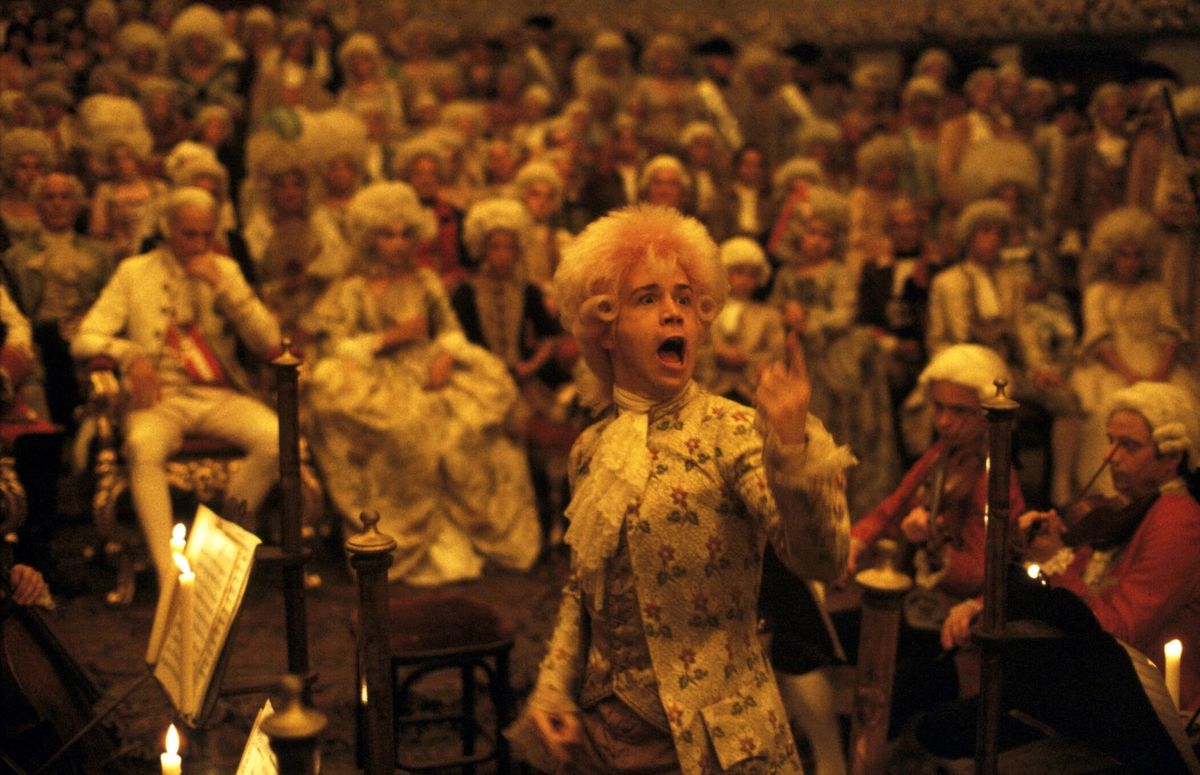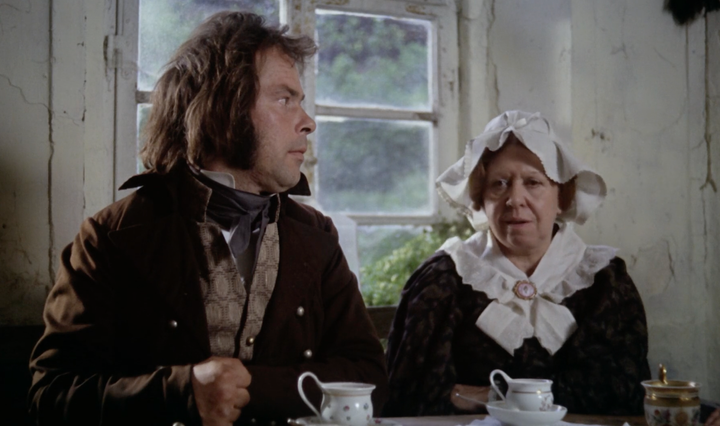Film of the Week: "Amadeus" - A Masterpiece of Music and Drama

Hello dear film lovers and alchemists of cinema! This week we take you on a journey back in time to the 18th century, to the magnificent palaces of Vienna, where music and intrigue fill the air. Our film of the week is "Amadeus", a biographical drama that takes us into the world of Wolfgang Amadeus Mozart and Antonio Salieri.
A fantasy on the theme of Mozart and Salieri
"Amadeus" is a 1984 film directed by Miloš Forman and adapted by Peter Shaffer. Shaffer adapted his own 1979 stage play for the screen, creating a fictional rivalry between Mozart and Italian composer Antonio Salieri. Set in Vienna, Austria, in the second half of the 18th century, the film follows Mozart's life from the moment he leaves Salzburg.
It is important to emphasize that "Amadeus" is not intended to be a historically accurate biography. Shaffer and Forman have stressed from the beginning that they wanted to create an entertaining drama only loosely based on reality. They describe their work as a "fantasy on the theme of Mozart and Salieri."
Mozart and Salieri: rivals or friends?
The idea of enmity between Mozart and Salieri was popularized in 1830 by Alexander Pushkin in his play "Mozart and Salieri." In this play, Salieri even murders Mozart on stage. This drama was adapted into an opera 67 years later by Nikolai Rimsky-Korsakov and had its first film adaptation in 1914 by silent film director Victor Tourjansky.
In "Amadeus," Salieri is portrayed as a pious loner trapped in a vow of chastity. In reality, however, Salieri was a married family man with eight children and at least one mistress.
A triumph at the Oscars
"Amadeus" is not only an impressive drama, but also a real Oscar magnet. The film was nominated for eleven Academy Awards and won eight, including Best Picture, Best Director and Best Actor in a Leading Role. F. Murray Abraham, who plays Salieri, and Tom Hulce, who plays Mozart, were both nominated for the Best Actor in a Leading Role Oscar, with Abraham winning the award.
Some interesting facts
- Mozart was actually commissioned to compose a Requiem Mass by an anonymous benefactor. In reality, it turned out that the patron was Count Franz von Walsegg, who was grieving after the death of his wife.
- The film shows a scene in which Mozart plays the piano while it is upside down. This is actually a true anecdote from Mozart's life!
- Most of the film was shot in Prague, as the city of Vienna was too modern to believably portray the 18th century.
- Ironically, the film sparked a revival of Salieri's music, which had previously faded into obscurity. Despite the portrayal of Salieri as an envious and rival of Mozart in "Amadeus," the film helped his music to be rediscovered and appreciated.
- In the scene where Salieri writes down the requiem mass under Mozart's dictation, Tom Hulce intentionally skipped lines to confuse F. Murray Abraham. This was to give the impression that Salieri was unable to fully understand the dictated music.
- Several music professors, after studying all the piano keys struck in the film, have determined that not a single key is struck incorrectly compared to what you hear at the same moment. In other words, what you see is exactly what you hear.
- The performance of "Don Giovanni" in the film was shot on the same stage where the opera was first performed. This adds an extra layer of authenticity and historical accuracy to the scene.
- The film was shot without the use of incandescent bulbs or other modern lighting devices. This adds to the historical accuracy of the film and helps capture the atmosphere of the 18th century.
"Amadeus" is a film that has stood the test of time and is still as captivating and impressive as when it was released. It is proof that true art, just like Mozart's music, is immortal. So, dear alchemists, let's dive into the world of "Amadeus" this week and experience the magic of cinema!




